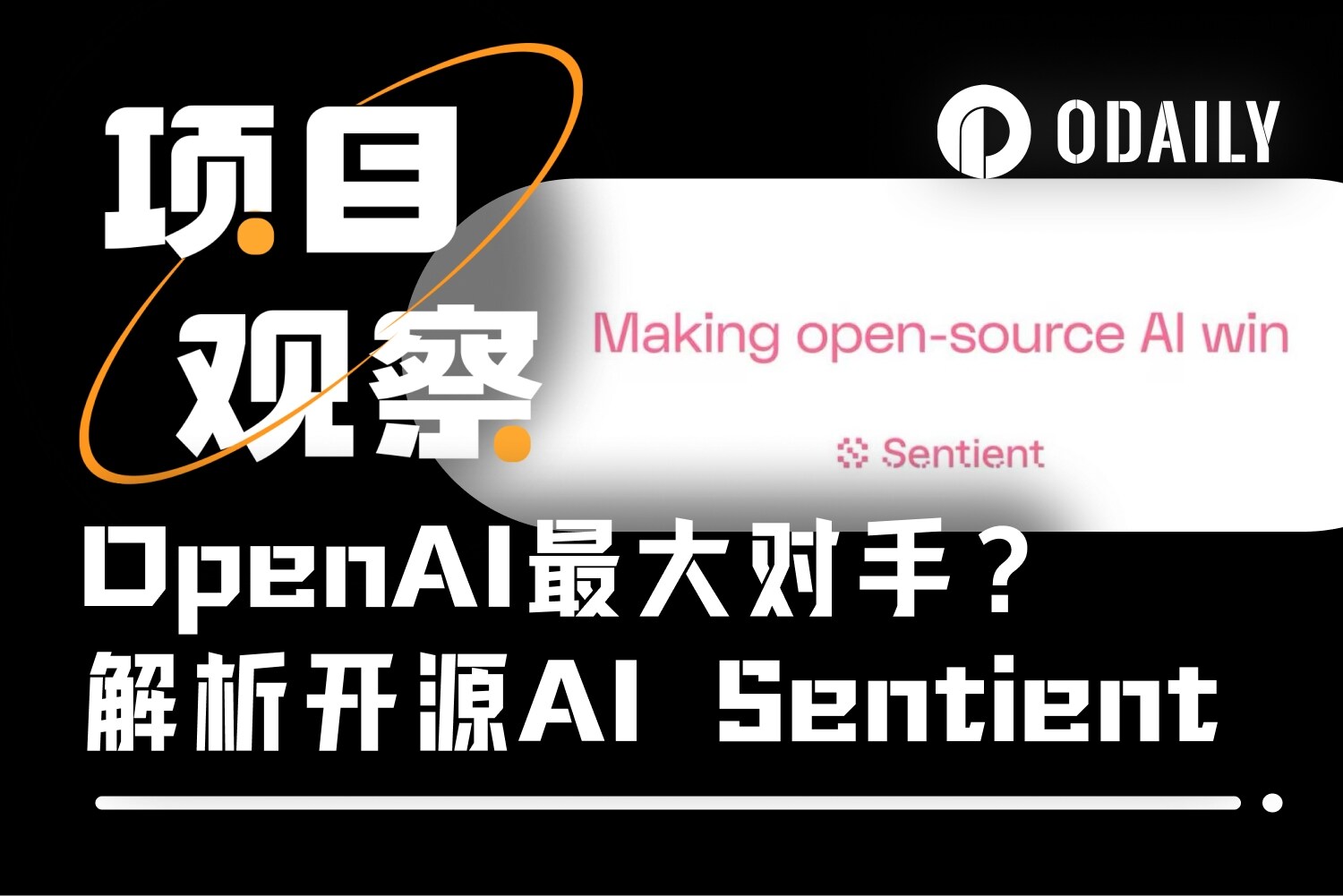AI Proxy and Identity Verification, the Next Disruptive Encryption Narrative?
Original Author: KERMAN KOHLI
Original Translation: Deep Tide TechFlow

If there's one thing I've learned from years in the cryptocurrency industry, it's that this market is highly driven by narratives. I break down its driving units as follows:
Stories that people can understand;
Beliefs formed around those stories;
Memes that encapsulate those beliefs.
Let's look back and apply this framework:
2022
There's a massive yield market that only banks can take advantage of, if:
Banks act maliciously, and cryptocurrency represents an alternative, better system
Cryptocurrency is a way to earn high interest rates in USD
2017
Government prevents ordinary people from investing in great companies
Wealth creation shouldn't be limited to qualified investors
ICO is a new way to get rich
The format is the same, only the roles, narratives, and characters differ. Each cycle brings new heroes and villains. Just make sure not to be the protagonist. As you attract more attention, your chances of survival decrease.
We've been through over a decade of cryptocurrency, and everyone's question in their minds is: What happens next? You can't reuse the same narrative because those stories have had negative outcomes (Terra/Luna/FTX, ICO scams, etc.). That's not to say they're bad! Each cycle brings more talent, resources, and scale to the crypto economy. It's just that ordinary people won't return to the cryptocurrency space unless there's a meme that resonates with them and aligns with their belief system.
In the past, there were some things I blamed myself for not connecting my beliefs with my reputation, and then regretting it. Lately, I have become more confident in my views and believe that, unlike in the past, I will persist. At least, when I look back in the future, I will not regret doing nothing.
Without further ado, let me introduce to you the bull market narrative from 2024 to 2026. Remember, it is currently 2023.
Cryptocurrency + Artificial Intelligence
What has amazed me in the past few months is the rapid acceptance of artificial intelligence by the entire world, especially by large corporations. I may not need to provide enough evidence for these events, as you can easily find them through Google searches and information on Twitter. I have two strong arguments about what this will entail, so I will explain them one by one.
Internet Currency
Now that we know global consciousness has been influenced by artificial intelligence, what will happen next? Right now, you are simply integrating artificial intelligence into your tools.
The next step in this progress is the rise of artificial intelligence agents. Agents that you train, using your data, on your tools. AutoGPT, BabyGPT, and many other projects are already moving in this direction. While this technology is still somewhat in its infancy, it is impossible, given what we know today, that it will not reach this stage, and people hope it does. AI agents will allow you to automate more of your workflow. The ChatGPT plugin is already a simplified version of this, where you can:
Express your intentions to LLM;
It will find the appropriate course of action for you;
Execute the action.
If you disagree, please correct me, but the above logical reasoning is relatively sound and unlikely to be mistaken. So, what is the most powerful energy that people want to express intentions with? Money, the universal energy adapter. People will want intentions based on money. Here are some simple examples:
"Bet $100 that the Los Angeles Lakers will win in the next game."
"Find the best articles about the Trump election and pay for any paywalls encountered, paying a maximum of $20 per month."
"Purchase my usual grocery list and have it delivered on Friday night, paying a maximum of $30 for delivery fees."
All of these intentions are impossible to achieve in the existing banking system. Why is that? Again, let's start with something small:
It is actually an artificial intelligence agent that executes the purchases, not you;
If the agent makes the purchase for you, it means that you did not directly authorize the transaction (it was authorized by your AI);
If someone else makes the purchase on your behalf, your fraud/refund risk will skyrocket;
No one is willing to take on this risk.
The only solution is to set up a cumbersome checkout process in your chatbot, forcing you to enter credit card information in the chat window. Alternatively, it is easy for people to say:
"I didn't buy that! My AI went rogue and bought it for me! I demand a refund because I did not authorize this transaction!"
What will the bank do? Refund the money. What will the merchant do? Make sure they don't allow AI-driven transactions because they cannot verify if it was indeed their own action. I thought of a similar analogy: a child secretly using your credit card.
LLM (Limited Liability Marketplace) is basically like this. The above article indicates that it is already a gray area when your children use your card. When the App Store was launched, Apple invested heavily in infrastructure. In these cases, the bottom line seems to be: the consumer always wins. The merchant pays in the end.
This is a regulatory and banking issue. To prevent that from happening, banks and payment processors will reject acting on behalf of LLM, creating a more cumbersome user experience!
So, what is the alternative? Well, if you're reading this article, I think you may already know - cryptocurrency, the internet-native currency without intermediaries, accessible via APIs.
Also, think about how you verify the transactions you authorize when using a credit card. By entering the correct numbers on the plastic card? What a joke. It should be by signing with your private key on the correct data. Everything else can be forged. Especially when it comes to money, LLM (machine learning models) needs encryption guarantees.
All of a sudden, an entire new category of LLM will emerge. One that uses cryptocurrency payment systems and another that uses traditional banking payment systems. Guess which one will provide a better user experience? That's right, the one using cryptocurrency. Codes need to be ensured, callbacks and finalized. Credit cards cannot provide these. Cryptocurrency can.
A whole industry will emerge, revolving around AI agents using cryptocurrency and cryptocurrency companies supporting AI agents. Autonomous calculations will intertwine.
This is my perspective, and it may be the most compelling one. Now let's take a look at the other side.
Internet Identity
For some people, this may not be obvious, but the problems with existing systems are starting to show. Let's start with the following points: Identity verification on the internet has been compromised.
Phishing scams are becoming increasingly difficult to detect (even for those with high complexity)
Deepfakes are becoming increasingly difficult to distinguish from real photos
Most digitally represented sensory (visual/auditory) content is difficult to determine authenticity
In the world of big data models, attributing ideas becomes increasingly difficult
All of these problems fundamentally boil down to the following issue: It is extremely difficult to prove one's identity in an unbreakable way on the internet. Email addresses have issues (phishing), phone numbers are not the best choice (SIM card swaps), and soon audio/video will also become more challenging. If there is a reliable method, it is one we already know:
A public key representing your identity;
A private key ensuring control over that identity.
With the support of cryptography and mathematics that underpin these structures, there is no method that can compare.
So, how does this work? Essentially, by using private and public keys for verification of identity on the internet, everything becomes "web3-fied". Hardware, software, and users all need keys to create a series of provable identifiers for verification during the information transmission process. This will be more challenging to implement as it will originate from underlying hardware, but the narrative may drive enough momentum towards this direction. iOS and Android already support PassKeys, so major tech companies are certainly considering this issue. The future I envision is as follows:
Your phone has a public key for confirming its identity;
You have your own public key for confirming your identity;
Any application you use has its own identity when transmitting photos/videos;
Any content on your phone will have a series of public keys to track its source in an encrypted and verified manner.
I could expand further on this direction, but the path and timeline are not clear to me, although I believe it will be a powerful story people can rally behind. Empowering internet identity.
Conclusion
Before the emergence of artificial intelligence in the past few months, this was impossible to see. This is a unique new approach that opens up possibilities for future realities. AI is at its highest level in history, while cryptocurrencies are at their lowest level in history. Imagine that in the next 12-18 months, these two intersect on the curve, with cryptocurrencies rising while AI declines. I may be wrong about the timeline, but I am confident that the logical chain I described above is reasonable enough to withstand the test of time.
We have always known that using cryptocurrencies to buy coffee or anything else in the real world doesn't make sense. However, it does for the native internet economy. And AI has made this clear to the world, as AI agents live on the internet.



